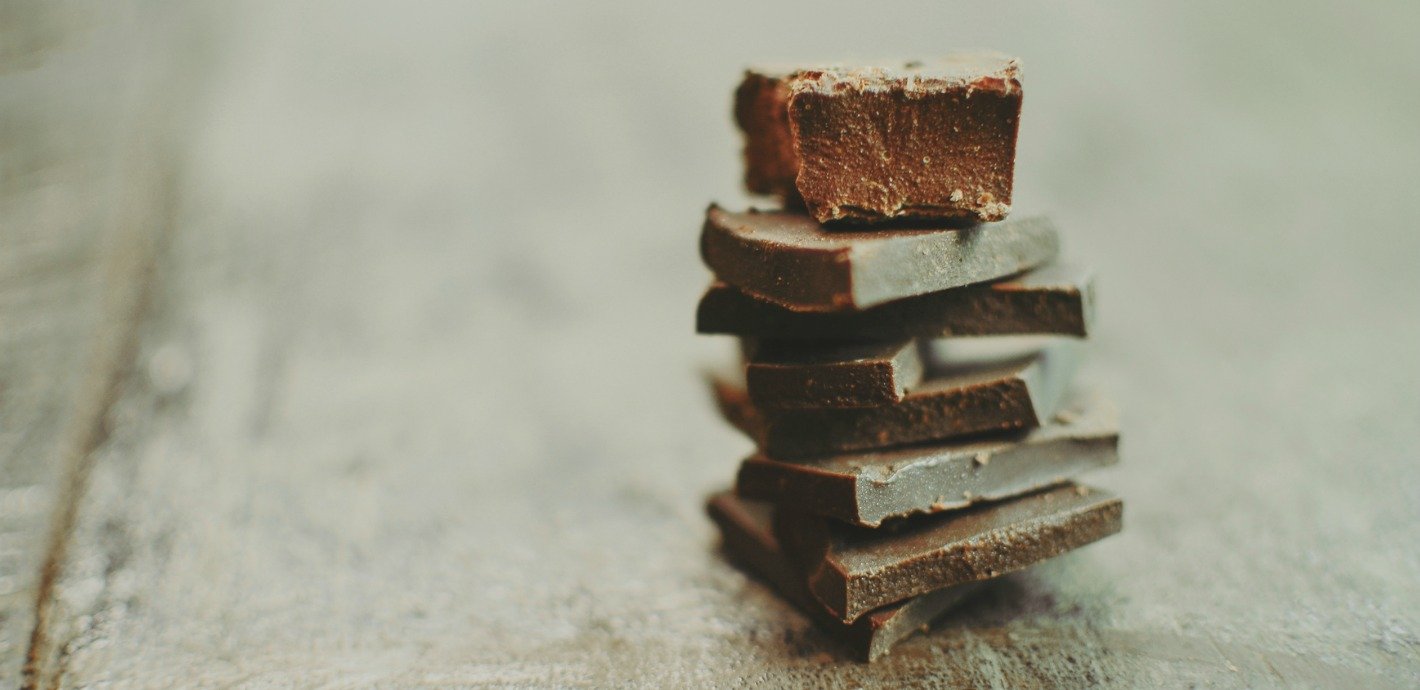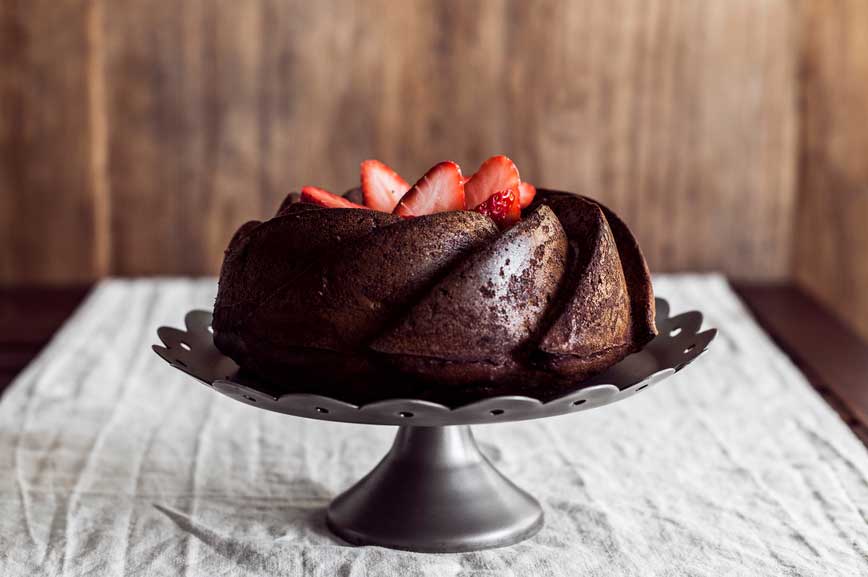When your diet is relatively clean, you know how delicious healthy food can taste. A big salad made with fresh-picked baby lettuces, a creamy avocado, a bowl of juicy berries—all of these rank high on health and taste. Yet when it comes to satisfying your sweet tooth, the story is different. If you’re craving something other than that bowl of fruit, the tasty options are endless—but the good-for-you choices can be limited. Sugar has been vilified for good reason—it’s low in nutritional value and is a direct contributor to the modern struggle with obesity and diabetes in the world. And while honey, agave, and maple syrup (all used to sweeten healthy-sounding desserts) have some nutritional value, they certainly don’t help do things like lower your cholesterol or prevent Alzheimer’s disease.
Dark chocolate, however, is an exception to the say-no-to-sweets rule.
Science supports this: “Countless studies have proven that the plant compounds—called flavanols—found in the cocoa beans used to make chocolate can do everything from improve your heart health to help ease stress,” says Joy Dubost, R.D., a dietitian and spokesperson for the Academy of Nutrition and Dietetics. “But there’s a big catch: Not all chocolate is created equal, and it’s important to know what to look for if you want the biggest health boost.”
Make sure your chocolate is made with 70 percent cacao or more—that’s where you’ll find enough concentration of flavanols to make a difference in your health, says Dubost. Just because a package says “dark chocolate” doesn’t mean it’s 70 percent cacao, so you’ll likely have to do some label sleuthing. What’s more, dietitians agree that it can be easy to overindulge thanks to dark chocolate’s health halo.
“Even though dark chocolate is great for you, it still contains fat and sugar that’ll contribute to weight gain if you eat too much,” says Jim White, R.D., a spokesperson for the Academy of Nutrition & Dietetics. Both White and Dubost agree that one square of dark chocolate (about 40 grams) is a good amount for a daily fix.
If you snack on dark chocolate less frequently, aim to keep your portion size to two or three squares max. This shouldn’t be too hard: Research shows dark chocolate is more filling than milk chocolate. Also, keep in mind that the higher the cacao content, the less chocolate you’ll need to get the health benefits, says Dubost. “However, dark chocolate with 80 percent or more cacao can be very bitter,” she says, which means it may not taste so dessert-like at that point.
Still not sold on the dark stuff? Maybe the following research will help you make a better choice in the candy aisle.
Dark chocolate improves the good-bad bacteria balance in your gut. In the first study to examine the effects of dark chocolate on various types of stomach bacteria, researchers at Louisiana State University recently discovered that the healthy, “good” microbes in the gut—such as bifidobacterium and lactic acid—feast on dark chocolate, producing anti-inflammatory compounds as a result. “When these compounds are absorbed by the body, they reduce inflammation particularly in the cardiovascular tissue, which reduces the risk of stroke,” says White.
Dark chocolate helps your heart. The high concentration of anti-inflammatory flavanols may protect your ticker. In one nine-year study of more than 31,000 women, eating one to two servings of dark chocolate each week reduced the risk of heart failure by as much as one third. Another long-term study found that a square of dark chocolate a day can lower blood pressure and reduce the risk of heart attack and stroke by nearly 40 percent. “We think it’s because the flavanols in dark chocolate increase the flexibility of the veins and arteries around the heart, which improves circulation and promotes healthy heart function,” says Dubost. Another theory proven in the lab: Flavanols may also stabilize plaque in the arteries, making it less likely to dislodge or travel and cause a stroke or heart attack as a result.
Dark chocolate boosts your brainpower. Improved circulation also sends a fresh supply of oxygen to your brain, helping you feel more alert. In fact, one study found that drinking hot cocoa rich in flavanols (read: dark hot chocolate) boosted blood flow to parts of the brain for up to three hours, improving alertness and performance on simple calculations. Other research found it’s not just short-term effects dark chocolate provides: One study of people over 70 found that those who consumed the most flavanols (found in dark chocolate, wine and tea) scored much higher on cognitive tests than those who didn’t.
Dark chocolate decreases stress. This explains why you may crave chocolate when you’re feeling frazzled: It contains a couple different compounds that help us chill, one of which—called phenethylamine—triggers the release of the same feel-good endorphins that flood our body when we’re in love. In fact, one study found that letting dark chocolate melt in your mouth makes your heart pound and brain buzz the same way it does when you kiss someone. (Interestingly, the researchers found that when you kiss someone after eating a square of dark chocolate the endorphin-boost doubles!) Other studies show that another compound in dark chocolate, called anandamide, activates the same brain receptors as marijuana. This might be why yet another study found that when anxious people ate an ounce and a half of dark chocolate every day for two weeks, cortisol (the stress hormone) levels plummeted.
Dark chocolate relieves coughs and prevents colds. Before you reach for the cough medicine, you might try a square or two instead: One study found that the theobromine in dark chocolate can work almost as well as codeine—minus the negative side effects—to quiet coughing. Dark chocolate also contains zinc, which can help bolster the immune system.









Comments (0)